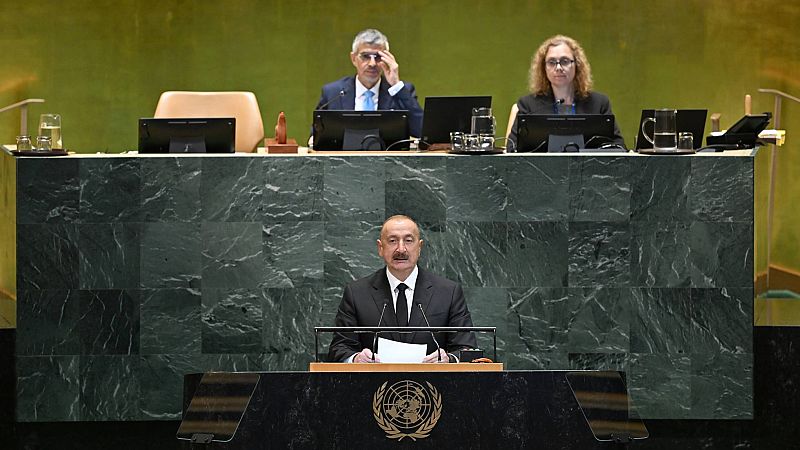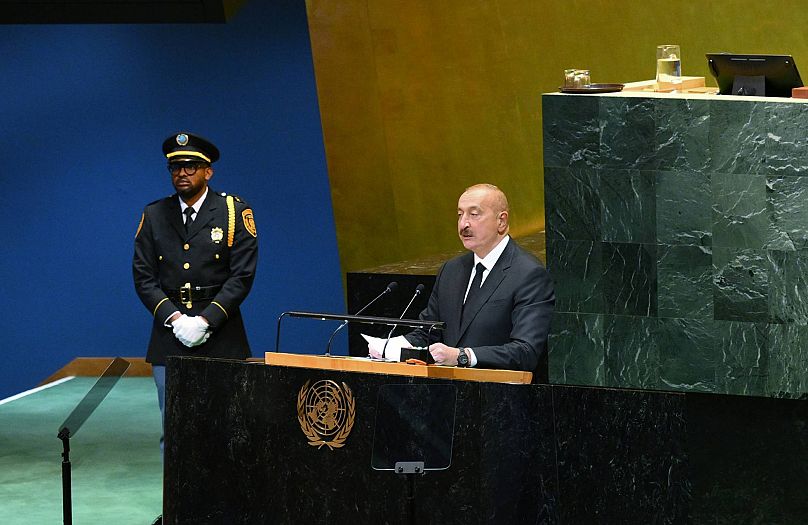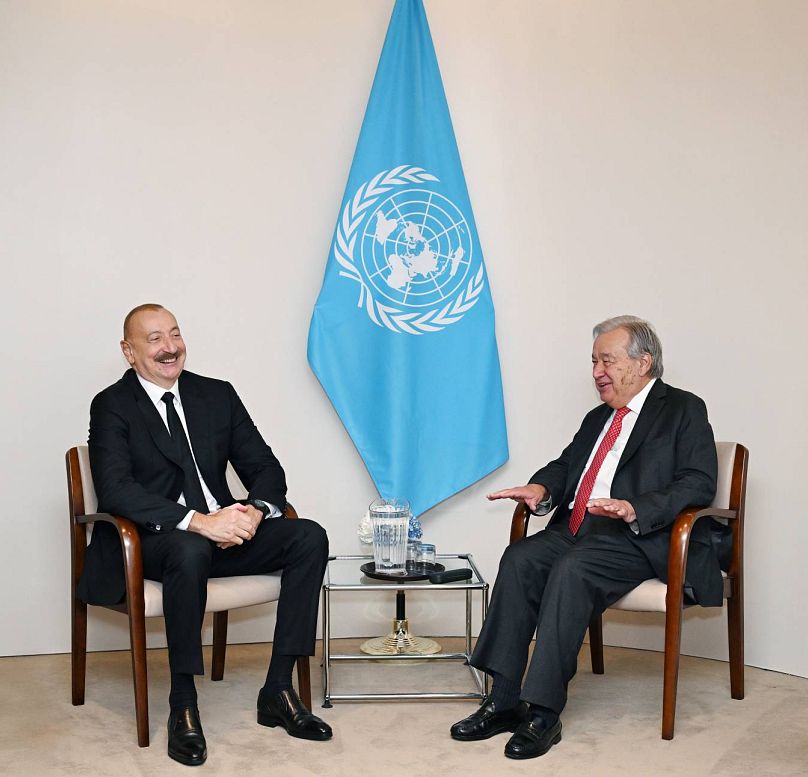President Aliyev showcases Azerbaijan’s peace deal and energy leadership at UN

Azerbaijan’s President Ilham Aliyev told the UN General Assembly that his country had restored its territorial integrity after decades of conflict with Armenia.
Aliyev said this, marked the end of years of hostilities, pointing to recent talks in Washington as progress towards a final peace agreement.
From occupation to peace
Aliyev recalled that for nearly three decades, almost one-fifth of Azerbaijan’s territory was under occupation, with hundreds of thousands displaced. He told world leaders that the 2020 war ended this chapter, restoring territorial integrity and opening the door to peace with Armenia.
“Justice has triumphed, sovereignty has been consolidated, and peace is de-facto reached,” Aliyev declared. He stressed that the recent peace agreement between Azerbaijan and Armenia, initialed in Washington, marked a historic turning point. Both sides jointly appealed for the closure of the OSCE Minsk Group, a move he described as closing the page on a frozen conflict.
Reconstruction and return
With peace in place, Aliyev said the focus is now on rebuilding the once-occupied territories. Under the government’s “Great Return” program, more than 50,000 former internally displaced persons have already returned to their homes. Entire towns and villages, many razed during the years of occupation, are being restored with new housing, schools, and infrastructure.
He pointed to landmine contamination as one of the gravest challenges slowing reconstruction, calling for greater international cooperation to clear affected areas.
A green transition and energy security
Turning to global issues, Aliyev underlined Azerbaijan’s role in climate action. As host of COP29, he said Azerbaijan helped broker the “Baku Finance Goal” – a commitment to boost climate finance to at least €279 billion a year for developing countries. He also cited progress in carbon markets and the operationalization of the Loss and Damage Fund.
At the same time, Aliyev emphasized energy security. Azerbaijan is currently supplying pipeline gas to 14 countries and expanding renewable energy projects to ensure that 40% of its electricity will come from clean sources by 2030. “The world cannot live without fossil fuels today, but the transition must be fair and realistic,” he said.
Connectivity and economic growth
Aliyev positioned Azerbaijan as a vital hub linking East and West. Cargo volumes through the Middle Corridor have grown by nearly 90% since 2022, supported by ports, railways, and a growing air-cargo fleet. He also highlighted digital projects such as the “Digital Silk Way”, aimed at turning Azerbaijan into a regional ICT hub.
On the domestic front, he pointed to reforms that reduced poverty and unemployment to around 5%, strengthened non-oil industries, and earned the country higher ratings from international agencies such as Moody’s and Fitch.
A partner on the global stage
Aliyev framed Azerbaijan as both a regional stabilizer and a proactive global partner. The country has sent humanitarian aid to more than 80 nations, from disaster relief to COVID-19 supplies.
At UNGA, Aliyev also met UN Secretary-General António Guterres and several world leaders, underscoring that Azerbaijan’s peace deal with Armenia has changed the dynamics of the region. “There had been no peace since independence. However, peace now prevails,” he told Guterres, calling this achievement historic for both nations.
Azerbaijan’s president also engaged with business leaders and heads of state, exploring opportunities in investment, energy, and infrastructure. Looking ahead, he pointed to the UN World Urban Forum to be hosted in Baku in 2026 as a chance to showcase Azerbaijan’s expertise in post-conflict urban planning.
“A new era”
Aliyev left a clear message to the UN, stating that “our vision is peace and development based on international law, mutual respect, and cooperation. Let us build a world without double standards, where peace is achieved not through words alone, but through actions.”
Today



